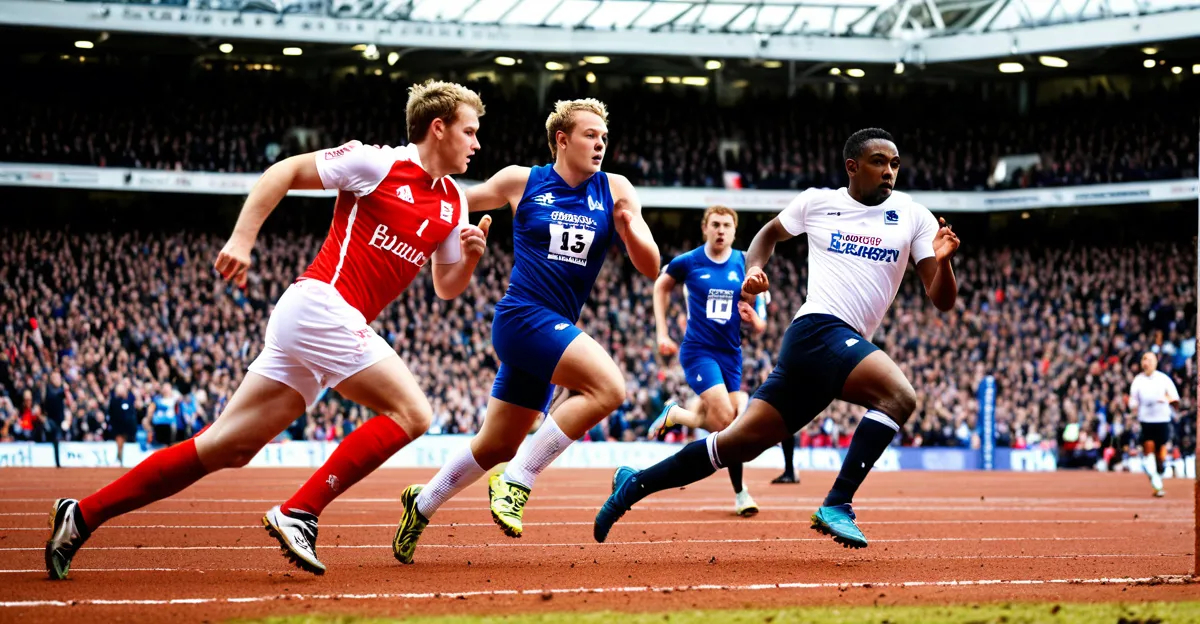Influence of UK Sports on International Tournaments
The UK sports impact on international sports competitions is substantial and multifaceted. British athletes and teams consistently feature across a wide range of global events, from football’s FIFA World Cup to Wimbledon in tennis, asserting strong influence over the global sporting environment. For example, the UK’s football teams have a storied history in the World Cup, with England’s 1966 victory still celebrated worldwide. More recently, UK athletes have excelled at the Olympics, especially in cycling and athletics, often dominating medal tables and setting new records.
Notable performances include the rise of British tennis stars who have reshaped the sport’s dynamics globally. Additionally, the UK’s unique approaches to training and sports science have attracted international attention and often set benchmarks in competition preparation.
In parallel : How Are Recent Changes in UK Sports Governance Impacting Athletes?
Controversies also shape the UK’s global sporting influence. Issues such as doping allegations or disputes over officiating in major tournaments have stirred debate, reflecting the complex role the UK plays in maintaining fair play standards internationally.
This blend of success, innovation, and occasional controversy positions the UK as a key driver in elevating the quality and profile of international sports competitions, further solidifying their role in the global sporting environment.
In parallel : What Are the Innovations in UK Sports Medicine?
Key UK Sports Figures Shaping International Outcomes
UK sports icons hold a profound influence on the global stage. Notable UK athletes achieve remarkable success internationally, setting standards in fields such as football, tennis, and athletics. For example, tennis stars like Emma Raducanu have not only won Grand Slam titles but also brought visibility to British talent worldwide. These figures often become ambassadors who elevate the UK’s sporting reputation.
Leadership in sports extends well beyond the field. Some UK coaches and former athletes now serve in prominent roles within global sports organisations, shaping policies and development programs. Their leadership ensures that British sporting values and expertise impact the evolution of international competitions, reinforcing the UK’s position as a key player in global sports management.
Player transfers and coaching careers crossing borders underscore the cross-border influence of UK sports figures. British coaches working abroad bring tactical expertise that can redefine teams’ performance in foreign leagues, while players moving internationally enhance cultural and athletic exchange. This dynamic fosters collaboration and innovation, enriching both UK sports and global competition. Such exchanges highlight how British sports figures actively shape outcomes worldwide through varied roles.
Innovations and Training Methods from the UK
The UK sports training landscape has long been a fertile ground for groundbreaking innovations. Pioneering advancements in sports science and sports technology are key pillars supporting athlete development. Notably, UK training systems integrate biomechanics, nutrition, and psychological frameworks to optimize performance.
One significant innovation is the widespread adoption of data analytics tools developed in the UK that allow coaches to fine-tune athlete conditioning with precision. These tools provide real-time feedback, enhancing training efficiency and injury prevention. This approach to technology-driven training has influenced many national programs worldwide seeking to replicate UK standards.
Moreover, UK institutions such as the English Institute of Sport have been at the forefront of sports innovation. Their research in physiology and cutting-edge training techniques contributes extensively to global sports development. Countries frequently collaborate with UK experts to implement these methodologies, especially in endurance and strength conditioning disciplines.
The UK’s emphasis on holistic training — combining physical, tactical, and mental preparation — sets a benchmark in sporting excellence. This multidimensional approach exemplifies how UK training systems go beyond conventional methods, inspiring international adoption and elevating the global sports ecosystem.
Policy, Investment, and Organisational Structures
Setting the framework for sporting success
The UK sports policy landscape profoundly shapes the nation’s international competitiveness. Through targeted government investment, a clear priority is given to developing world-class athletes and enhancing infrastructure that supports elite performance. Strategic funding initiatives ensure resources align with long-term goals, allowing for sustained progress on the global stage.
Crucially, UK sports organisations play a pivotal role in defining international rules and standards. Their active participation in global partnerships positions the UK not only as a competitor but also as a key influencer in the evolution of sport governance. This inclusion ensures that British athletes compete under frameworks that reflect both their strengths and values.
Hosting major international events underscores the UK’s commitment to sport. Such events provide immediate economic and cultural benefits, while the legacy effect catalyses improvements in sporting infrastructure. Upgraded facilities and increased public engagement create a virtuous cycle, bolstering participation rates and talent development for years to come.
Together, these elements of policy, investment, and organisational collaboration form a robust ecosystem. This ecosystem drives excellence, fosters innovation, and cements the UK’s standing as a global sporting power.
Comparative Analysis with Other Leading Sports Nations
Understanding the UK vs global sports landscape requires examining how the UK measures up against top countries in international competitions. When it comes to sports nation comparisons, the UK consistently performs well in various disciplines, but differences in athlete development and funding models influence outcomes.
The UK’s focus on long-term athlete development contrasts with more decentralized systems elsewhere. For instance, comparing UK and USA approaches reveals that American sports often emphasize collegiate competition as a pathway to elite levels. The UK, however, relies heavily on national governing bodies and structured talent identification programs. This difference impacts not only athlete progression but also international performances.
Benchmarking international results, the UK excels in sports like cycling, rowing, and athletics, often ranking in medal counts relative to population size. However, the USA’s sheer scale leads to higher overall medal and trophy tallies across more sports. European sports systems, meanwhile, prioritize club-based development and have varying degrees of state support.
In summary, international performance benchmarking highlights the UK’s efficient use of resources and targeted support but also showcases challenges in matching the volume and depth of talent seen in larger countries. This comparative view aids in identifying strategies that can be adapted to enhance performance globally.
Future Trends and Global Influence of UK Sports
The future of UK sports is poised for dynamic growth, driven by emerging disciplines and rising talents that signal a shift in the global sports landscape. Among the most promising are grassroots innovations embracing technology, such as eSports and advanced analytics in traditional sports. These developments reflect broader global sports trends that emphasize agility, audience engagement, and inclusivity.
In terms of international presence, the UK is predicted to extend its influence in major global competitions, leveraging both historic strength and fresh investments in athlete development. This outlook is shaped by recent initiatives focusing on young athletes and underrepresented sports, ensuring the UK remains competitive on the world stage.
Crucially, strategic programs aim to strengthen the UK’s global leadership in sports through international partnerships and enhanced training infrastructures. For example, collaborative coaching exchanges and cutting-edge facilities are designed to nurture talent while promoting sustainable sports practices globally.
This proactive approach not only elevates emerging UK sports but also aligns the nation with evolving global standards. The continued integration of technology and data-driven performance analysis is expected to be a hallmark of the UK sports outlook, supporting athletes and administrators alike in navigating future challenges and opportunities.



